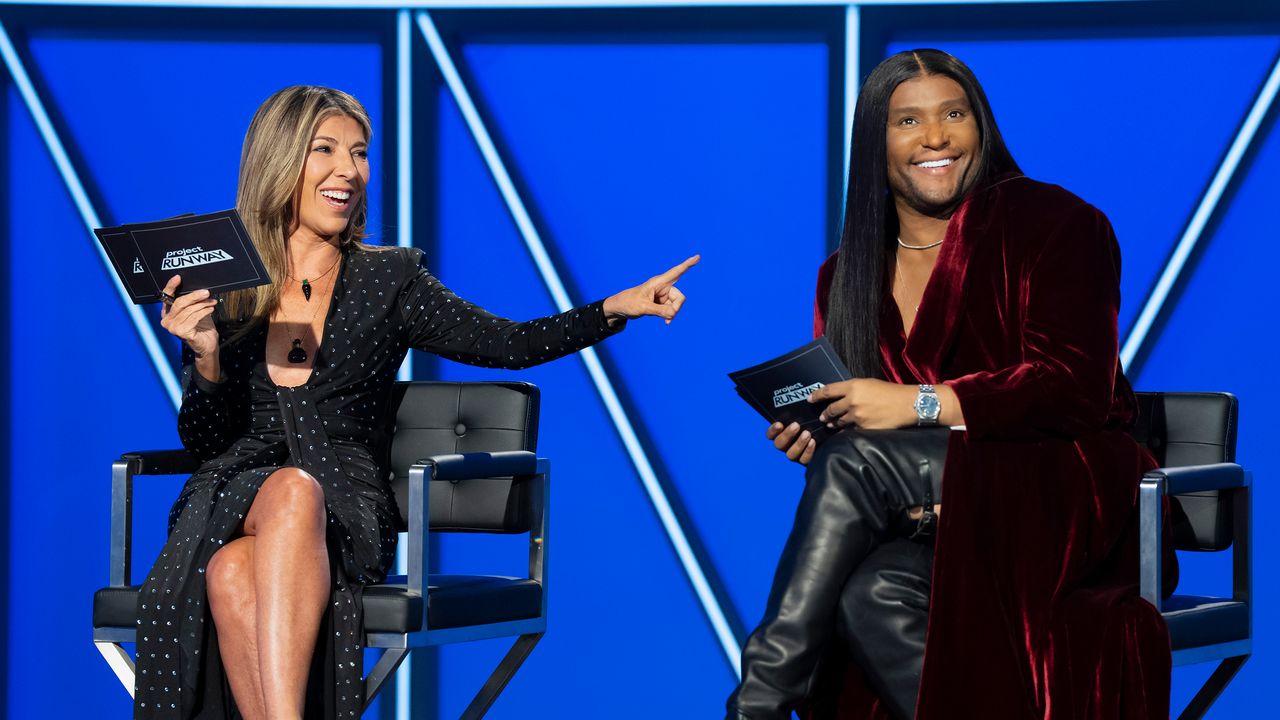On the premiere episode of Project Runway’s 21st season (debuting July 31), the judges rate a designer’s Disney-inspired look among the worst of the
On the premiere episode of Project Runway’s 21st season (debuting July 31), the judges rate a designer’s Disney-inspired look among the worst of the week. “Am I being punked?” the contestant puckishly replies, flabbergasted that their work isn’t being wholeheartedly embraced. New judge Law Roach, a celebrity stylist who also occasionally sits on the RuPaul’s Drag Race panel of assessors, glares the contestant’s way and remarks on their impoverished attitude. It’s the most tense Project Runway judging session since a designer shaded then host Karlie Kloss for her familial associations.
Elsewhere in the episode, Roach is harsh to another contestant’s otherwise praised look, leading one to wonder if he may be the show’s Simon Cowell figure: there to tell it like it is with extra, and some might say, unnecessary bluntness. He doesn’t have the same gonzo humor as former judge Michael Kors (a true great), but his spiky candor is welcome. So is the drama of that contestant getting pissy with the judges—then tearfully threatening to leave the competition just a day in.
It’s unusual to find this stuff on high-gloss reality competitions these days. In the the last decade or so, the genre has made a concerted turn toward, if not out-right niceness, at least positive encouragement. American Idol ditched Cowell for the kinder critiques of Jennifer Lopez and Katy Perry. Sometime before the pandemic, Top Chef turned from grueling to uplifting. Even the catty queens of Drag Race seemed to soften there for a few seasons—perhaps partly out of concern that being too villainous might affect their social media followings, and thus their careers, once the show aired.
This sea change was rooted in good intentions, and stoked at least in part by a change in culture at enormous: a dawning, social media-fueled focus on kindness and social justice, an attempt to address societal wrongs and minimize harm. More granularly, reality TV had been breathtakingly cruel for a decade and a half—grinding romantic hopefuls, aspiring models, wannabe pop stars, and other sorry folk into the dirt for our amusement. It was time for a change, at least where change could be made.
True, Housewives still scream at each other, and Love Is Blind contestants are still subject to merciless social experimentation. But some of the course correction—which mostly affected competition shows—has been for the best. Grimly entertaining as it sometimes may be, it’s impossible to watch senior episodes of America’s Next Top Model and not be shocked by its annihilating nastiness—which had deleterious effects on many of the newborn women who woefully passed through Tyra Banks’s house of horrors. We really shouldn’t be destroying anyone’s psyche for mere entertainment.
But as the years have crept on, I must confess that I’ve grown a bit tired of the kid-glove approach. It’s what finally chased me away from American Idol after perhaps too many years of devotion; it’s what has me groaning and rolling my eyes and yelling things at the up-with-people, everyone-has-a-story-of-sadness-and-triumph modern era of Survivor. What began as simply treating reality stars with some dignity has morphed into a smarmy strategy of casting and packaging, a determination that TV must find a way to comfort and inspire us as the American story grows darker and darker. It’s frequently corny and lifeless, this strenuous insistence that everything from American Ninja Warrior to Survivor to Drag Race must have some deeper human meaning.
Which is why Roach’s spat with a fashion designer was so invigorating. And why Mistress Isabelle Brooks was such a compelling specter of meanness on the most recent season of Drag Race All Stars. (Though the feuds that have continued past that season and metastasized online have grown seamy and squalid.) It’s refreshing to see reality producers and cast members alike take some risks, to shake up the prevailing mood of bonhomie, to charge the air to better reflect the constant tension of the world surrounding their shows.
Across the Atlantic, this season of Love Island UK has come to focus on two warring tribes of girls—a pretty stark departure for a show that usually sees most of the housemates getting along, or at least politely masking their dislike for one another. The show’s cast might be reacting to the wicked proddings of producers, who began cleverly needling the contestants early on in the season. A few seasons ago, Love Island UK got rid of its infamous lie detector episode because of all the emotional havoc it wreaked. Now the show seems to be eagerly reintroducing features designed to sow discord. It’s the best season in years.

COMMENTS